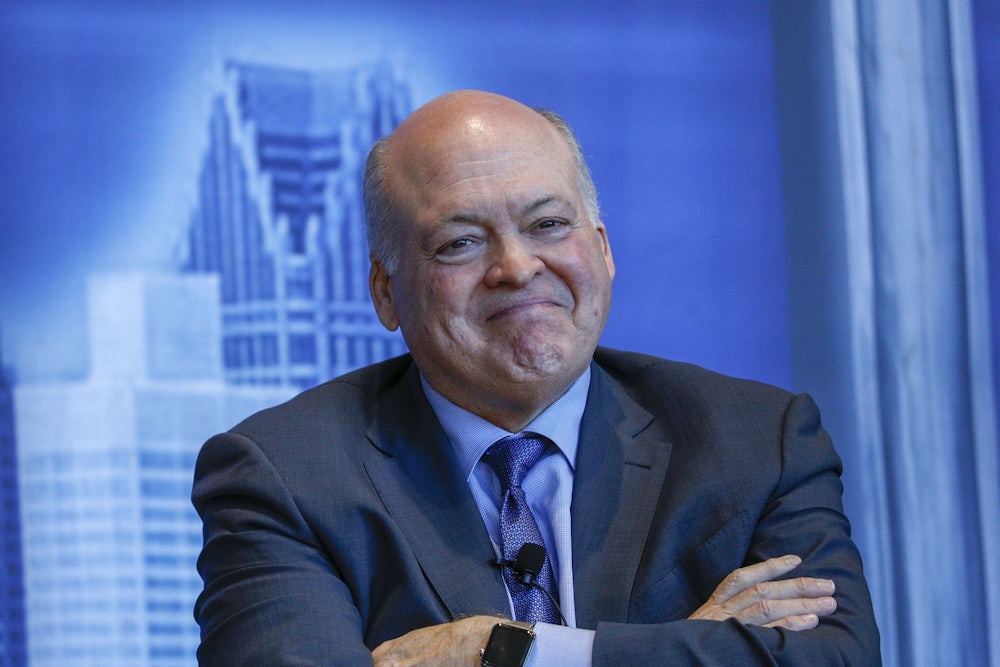At this point, you have to wonder which heavily polluting industries didn’t know about climate change half a century ago. This week, E&E News published a months-long investigation showing that Ford and General Motors—the country’s two largest automakers—knew about the risks their business posed to climate change all the way back in the 1960s, and did nothing to stop it. Worse still, they funded lobbying to make sure governments didn’t act, either.
The outlines of this story are by now broadly familiar, as it relates to companies from ExxonMobil to Shell to electric utilities: Earnest scientists decades back saw them as exciting and innovative places to continue in their field with ample funding. They found concerning signs that those companies’ core business was fueling greenhouse gas emissions and raising temperatures, which seemed like it would have a considerable impact on human and planetary well-being in the decades to come. They presented those findings to a set of largely indifferent higher-ups, who squirreled them away and plowed ahead with business as usual. When global warming caught the public’s attention some years later, in 1988, these companies joined other polluters in casting doubt on the same type of science their own in-house researchers had presented long ago. As a result, they were able to fend off policies that might threaten their bottom lines.
Like Exxon, Shell, and electric utility companies, Ford and GM—in addition to funding climate-denying think tanks—joined the Global Climate Coalition, which actively targeted U.S. involvement in the Rio Earth Summit in 1992. Its biggest win would be the Byrd-Hagel Resolution, barring U.S. involvement in the Kyoto Protocol or any other United Nations agreement that would “mandate new commitments to limit or reduce greenhouse gas emissions” for wealthier countries in the global north, “unless the protocol or other agreement also mandates new specific scheduled commitments to limit or reduce greenhouse gas emissions for Developing Country Parties within the same compliance period.” It was a GCC talking point parroted by automakers in a well-funded advertising campaign against Kyoto, as E&E News points out. It passed through the Senate unanimously in 1997. Though the GCC has long since disbanded, its framework has been deeply influential in shaping U.S. strategy at global climate talks ever since. Through both Democratic and Republican administrations, U.S. negotiators have pursued voluntary agreements that whitewash questions about the historical responsibility of wealthy nations in fueling warming that’s now hitting less-developed countries hardest.
Ford and GM, via spokespeople, told E&E News that all that is ancient history. “There is nothing we can say about events that happened one or two generations ago since they are irrelevant to the company’s positions and strategy today,” a GM spokesman said. Defending his company, a Ford representative said the car company is “addressing it right now” with investments in electric vehicles, and plans to make its manufacturing plants run on 100 percent renewable energy in 15 years. In other words: They’re a part of the solution now, not the problem.
Or are they? The transportation sector remains the single biggest contributor to greenhouse gas emissions in the United States, making up 28 percent of all carbon emissions. At this point, no respectable Fortune 500 Company today would dare to suggest climate change is a hoax or fund people that do, as they have in the past. Instead, however, they’re writing themselves into a future where plenty of science would suggest their business model doesn’t belong.
Just as Exxon and Shell project continued demand for oil and gas well past midcentury, Ford suggests that fossil fueled internal combustion engine vehicles (translation: cars running on some form of gasoline) will “continue to play a role in most markets” for “the foreseeable future,” even as they’re gradually “displaced by electric and other low-emission options.” The company’s Climate Change Scenario Report envisions four possible climate-changed futures depending on either low or high levels of innovation and low or high levels of climate damages. It’s similar to reports produced by Shell. In both cases, the reports are mostly used as public relations tools—something convenient for executives to mention in interviews to suggest they’re thinking deeply about these matters. But there’s a tell: However expansively polluters appear to think about their role in a warmer future, they can’t envision one without them in it.
Automakers, who have not been as aggressively targeted by climate campaigners as oil companies, still command a fair bit of public respect as job providers that keep the country moving. They figure heavily in Joe Biden’s Build Back Better plan, which holds that all-American electric vehicle production will create as many as a million jobs and pave the road to both recovery and net-zero emissions. Whether subbing out today’s sprawling, car-centric planning with electric vehicles is a desirable vision is its own question, especially given the myriad ethical and logistical issues up and down the EV supply chain.
There’s nothing in automakers past or present, however, to suggest they will be good-faith participants in an energy transition. Their sole interest is to turn a profit—or stay “financially relevant,” as Ford euphemistically calls it. As E&E News’s reporting shows, that’s been the goal all along, whether they happen to be denying that climate change exists or not.
